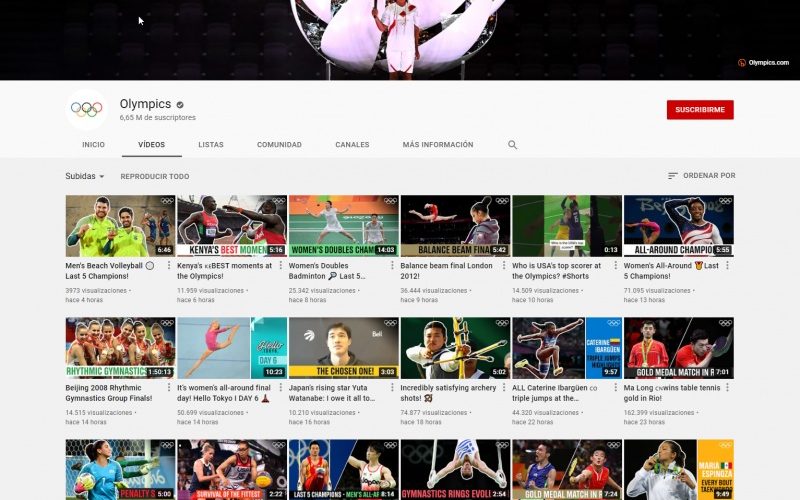In the war between television and VoD, streaming is clearly winning the battle. Television audiences fall and even prime time loses steam, but as this happens, streaming platforms are gaining weight and their contents are positioning themselves as the most prominent and popular.
TV only has one bastion left, one strong point, that of great live content, which VoD platforms do not have. But are you the Olympics questioning this too? In the United States, NBC is leaving coverage of the Games in part on its streaming service, Peacock, which also helps position it in front of the consumer.
Also in Spain RTVE had an impact on the presentation of the coverage that it was going to do in which it was going to be able to follow on “RTVE digital”. To all this we must add that the contents that the participating athletes themselves are uploading to TikTok are becoming very popular, themselves protagonists of their own derivative informative coverage.
For this reason, the Olympic Games can no longer be seen only on linear television. They could no longer be seen on television solely in the past. In previous editions, social networks were already a decisive and very important piece in the access to Olympic information. This year, however, the popularity of the network and the use of streaming to access this content could be a kind of final boost for this type of platform and for the use of access to sports content.
The data is already showing it. Conviva has just presented a global study on the use of streaming and social to access the contents of the Olympic Games and its percentages already point in that direction. Not only are there more people who used the network to access this content, but also their experience is getting better.
More viewers and a better experience
Compared to the opening ceremony of the 2018 Winter Games, streaming increased by 279% in viewing of the Olympic opening ceremony. 27% of the streaming viewing time of this content went to mobile screens and another 27% to computer desktop. Most of it was done, yes, with a connected television: 14% of viewings were on a smart TV and 23% on a device to connect the television.
Why has this growth occurred? According to Conviva, this year the expectations of the spectators were possibly much higher but the experience was better than in the past. Viewers who followed the ceremony live via the internet found 35% fewer failures at the start of viewing than in the past.
To this, it can be added that citizens themselves have become even more accustomed to viewing content via the internet and that the services and platforms that offer them are becoming more and more relevant. Television is no longer just that terminal in which live channels are seen, but a portal to access online content.
The VoD War: Sports All of this could also have a collateral impact on how things are distributed and how VoD platforms engage their viewers. Until now, major sporting events were something on television, which was fought over to capture audiences.
Few big events end up on free-to-air channels, true, but when they don’t, they do so on payment systems where you pay for access to premium television channels, but television after all. Sports tend to draw large audiences and, above all, loyal audience niches who are willing to pay to watch.
That is something that the telecos learned when they entered the war for football to attract and retain subscribers. It is something that streaming platforms are also learning now, so much so that it is taken for granted that the next streaming war will be for sports.
Perhaps it will be with specialized pure players (Dazn was one of those who was trying, until the coronavirus crisis disrupted his plans ) or perhaps with those that already exist now. In France, one of the great movements of the television market in recent weeks has been precisely that: Amazon has just acquired the rights to the French league for 250 million euros per year.
Prime Video will have a special channel dedicated to football that will cost 12.99 euros per month for its Prime Video subscribers. To watch the games, you will not only have to pay Amazon, but you will also have to have its Prime service. It will be interesting to see what happens to their subscriber numbers when the competition kicks off at the end of the summer.









